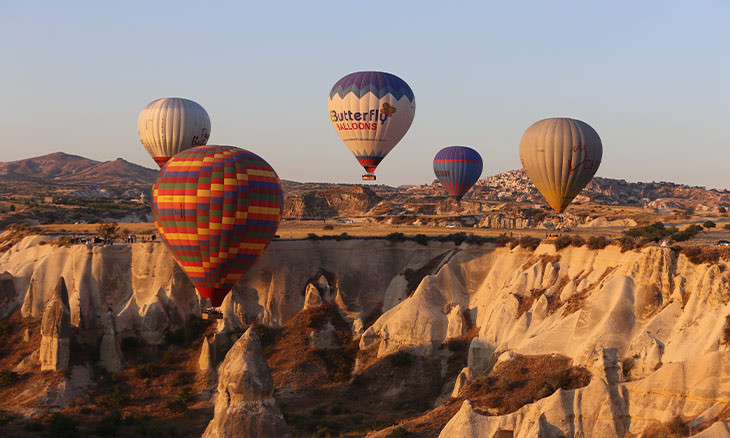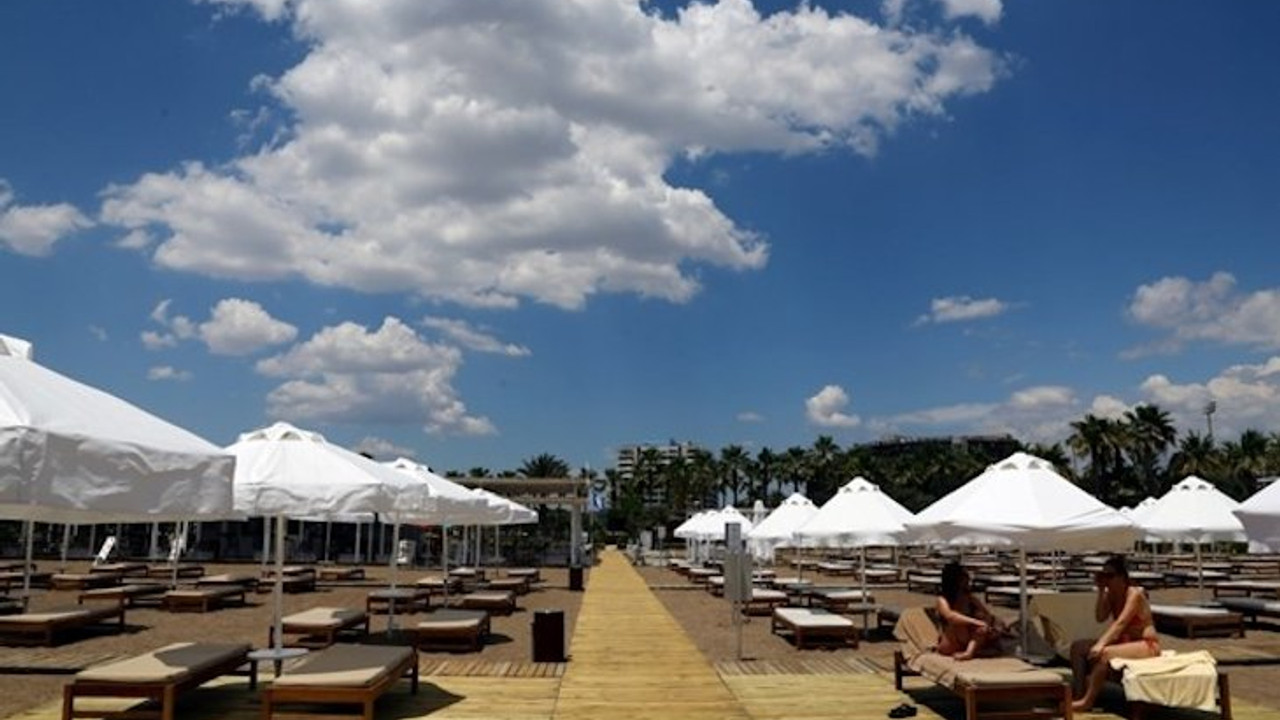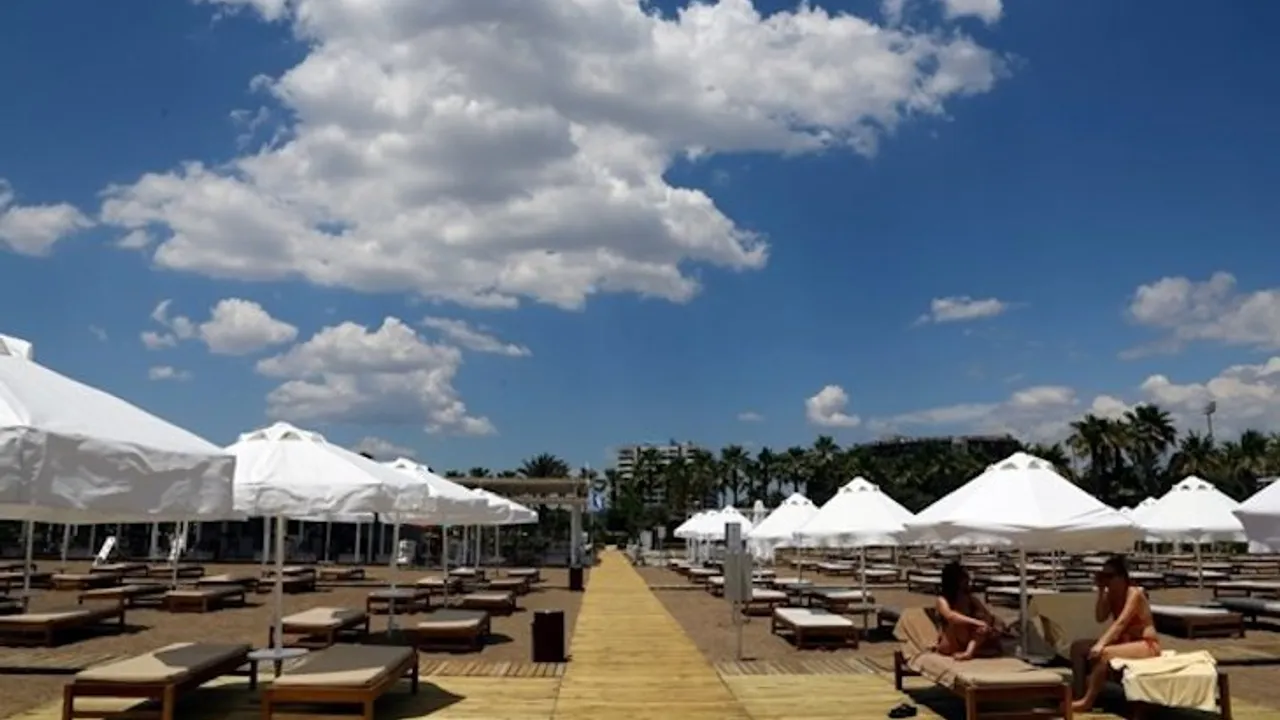Drop in Turkey's currency raises stakes as hotels fight for survival
For hotels across Turkey, 2020 has become a fight for survival, with the outcome crucial for a tourism industry which earned $35 billion in 2019 and whose losses this year have hit the country's foreign exchange earnings and contributed to the lira falling to record lows against the dollar. Ankara has tried to salvage the sector with intensive diplomacy and a healthy certification program meant to lure tourists.
Reuters
When Deniz Taş reopened his 660-room hotel on Turkey's sparkling Aegean coast in July he had only a modest goal - to break even for the rest of a tourist season devastated by the coronavirus lockdown.
For hotels across Turkey, 2020 has become a fight for survival, with the outcome crucial for a tourism industry which earned $35 billion in 2019 and whose losses this year have hit the country's foreign exchange earnings and contributed to the lira falling to record lows against the dollar.
"We crossed this year out. We are not looking to profit," said Taş, general manager of the Aquasis Deluxe in Turkey's western coastal resort of Didim, which in the past was booked solid by free-spending Britons, Germans and others vacationing in the world's No. 6 tourist destination.
This year mostly Turkish citizens have booked two thirds of the hotel's rooms. Its occupancy rate is better than that of hotels on Turkey's Mediterranean coast and in Istanbul, where only a third or less rooms are booked, according to owners and sector groups.

Fallout goes well beyond the cities and towns and millions of workers reliant on the sector. For years tourism has been a major counter-weight to Turkey's balance-of-payments problems. Concerns over the disappearance of foreign tourism cash was one reason the Turkish lira hit record lows in recent weeks.
Ankara has tried to salvage the sector with intensive diplomacy and a healthy certification program meant to lure tourists.
But foreign visitors virtually disappeared in April when a partial lockdown was in place, and have only started to trickle back. Arrivals were down 86 percent at 932,927 in July compared to last year, tourism ministry data showed.
Tourism Minister Mehmet Ersoy said on NTV on Aug. 24 he expected 15 million tourists in 2020 and more than $11 billion in revenue this year as long as flights continue to operate. Last year Turkey welcomed 45 million visitors.
The lira is among the worst performers globally this year after the selloff driven by Turks buying up hard currencies and the country's depleted FX reserves.
While the currency has stabilised against the dollar in recent days, analysts say further depreciation could swell Turkey's large current account deficit, which was nearly $20 billion in the first half of the year.
Ratings agency Fitch sees a current account deficit of 3.2 percent of GDP this year driven partly by "the collapse in tourism."
In his office overlooking the Aquasis Deluxe's entrance, where guests had their temperatures checked and luggage sprayed with disinfectant, Taş said 90 percent of them were foreigners last year but this year it is the opposite.
Costs - such as distributing 3,000 masks each day, and changes in serving and cleaning procedures under Turkey's certificate programme - are up, he said. "We now need to serve fewer guests with more staff."
Turkey's certificate programme sets health and hygiene standards for airlines, airports, hotels and restaurants. Russia and Germany, which provide the highest number of visitors to Turkey, have begun some flights to the main hubs.
Sector officials said the government achieved its goal of opening half of the hotels in the Mediterranean city of Antalya. But the Hotel Association of Turkey told Reuters a nationwide recovery won't begin until spring of next year.
Erkan Yağcı, head of the Mediterranean Touristic Hoteliers Association, said tough times remain. "Our priority for this year is not making profit, but to survive," he said.
Turkey lifted most of its partial lockdown in June. Since then, new coronavirus cases have remained mostly steady according to official data and rose above 1,200 in recent days.
When a jump in cases in Spain prompted Britain to impose a quarantine on arrivals from the country, Cassie Tovell, 37, a real estate agent from Essex, said her family of three turned to Turkey.
"We were of two minds whether to come or not but we decided to come and booked this holiday three weeks ago," she said pool-side at the Aquasis Deluxe. "Some people back home think we are selfish for coming here and having a holiday. But, no we needed a break."


